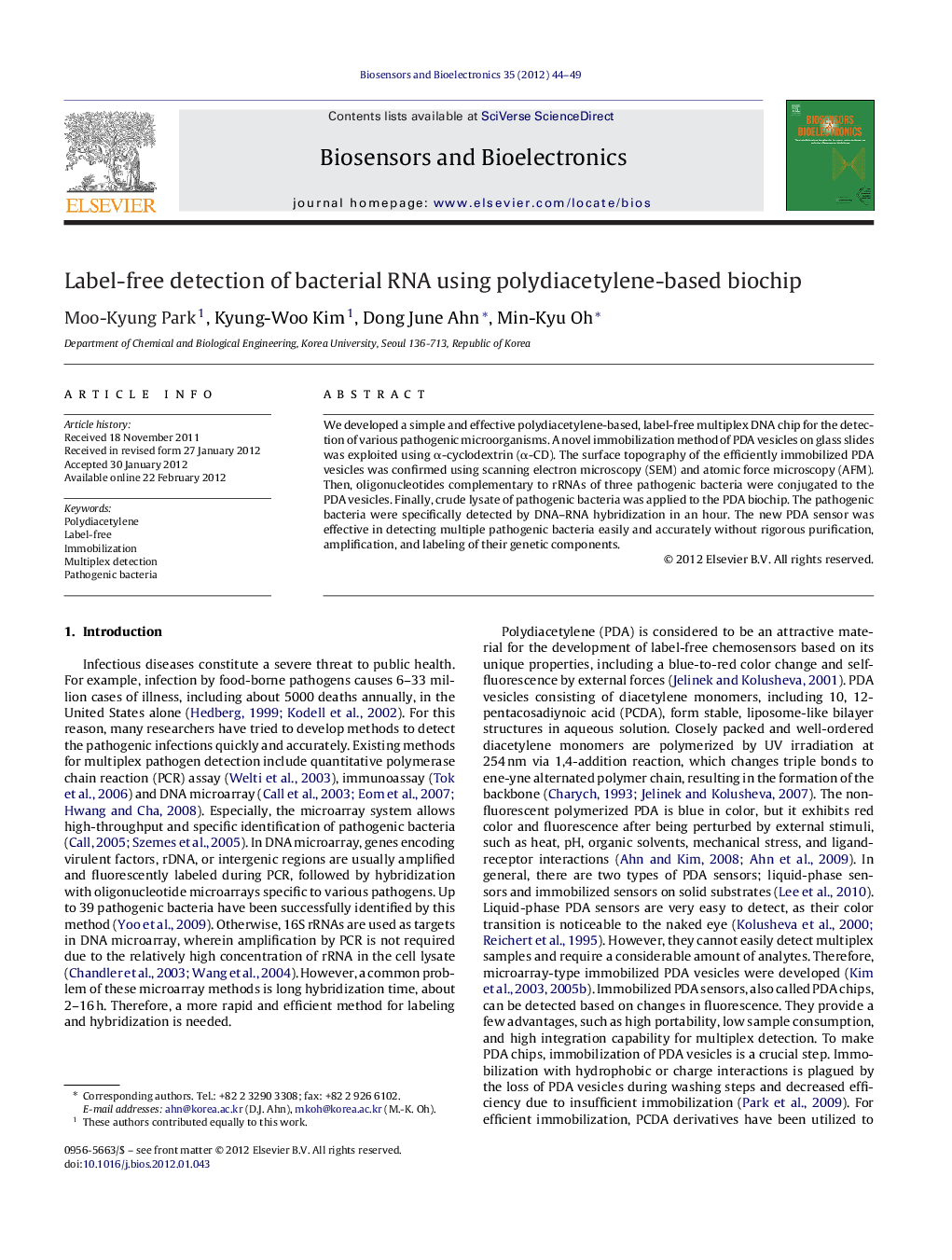| Article ID | Journal | Published Year | Pages | File Type |
|---|---|---|---|---|
| 867355 | Biosensors and Bioelectronics | 2012 | 6 Pages |
We developed a simple and effective polydiacetylene-based, label-free multiplex DNA chip for the detection of various pathogenic microorganisms. A novel immobilization method of PDA vesicles on glass slides was exploited using α-cyclodextrin (α-CD). The surface topography of the efficiently immobilized PDA vesicles was confirmed using scanning electron microscopy (SEM) and atomic force microscopy (AFM). Then, oligonucleotides complementary to rRNAs of three pathogenic bacteria were conjugated to the PDA vesicles. Finally, crude lysate of pathogenic bacteria was applied to the PDA biochip. The pathogenic bacteria were specifically detected by DNA–RNA hybridization in an hour. The new PDA sensor was effective in detecting multiple pathogenic bacteria easily and accurately without rigorous purification, amplification, and labeling of their genetic components.
► We constructed a label-free polydiacetylene-based biochip to detect bacterial rRNA. ► The polydiacetylene vesicles were immobilized on the slide using α-cyclodextrin. ► Crude bacterial lysates were applied to DNA probe-linked polydiacetylene chip. ► Multiplex detection of pathogenic bacterial rRNA was demonstrated in an hour.
